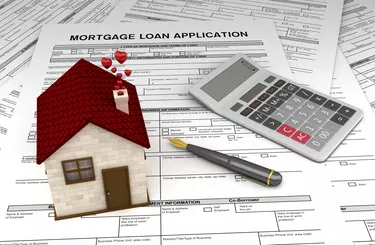
Given the relative high price of a home, it's no surprise that many buyers make use of mortgage loan to enable their purchases. In real estate, a person taking out a mortgage loan is known as the mortgagor while the entity making a mortgage loan to a borrower is known as the mortgagee. When mortgagors take on their mortgage loans they must also make certain guarantees to their mortgagees, known as "covenants," to receive their loans.
Covenants as Mortgagor Guarantees
Video of the Day
The term "covenants" is a part of the conveyance of real estate when a buyer purchases real property, such as a home, using a mortgage loan. Mortgage loan contracts require mortgagors to covenant, or guarantee, certain items to their mortgagees or lenders. For instance, mortgage borrowers are required to guarantee that they will lawfully own the properties, that they have the right to mortgage the properties to obtain their loans, and that no competing title claims exist.
Video of the Day
Covenant Enforcement and Loan Covenants
A covenant or guarantee in a mortgage is held by law to have "full force, meaning and effect," and it is legally enforceable between a mortgage contract's signatories. A different type of mortgage covenant is also frequently referred to as a "loan covenant," and most types of formal loans contain them. Loan covenants in a mortgage allow the lender to set out specific rules a borrower must follow in order to keep the loan from being foreclosed, for example.